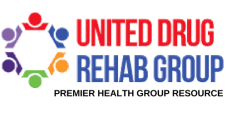Athletes, Drugs, & the Pressure to Perform
Mounting pressures and never before seen competition has combined with the overuse and prescription of pain-killing medications is harvesting drug addicts out of star athletes. The allure of success in sports is increasingly present here in the United States. Continuously for years now, the U.S. has been looked at for the standard in professional sports. In 2016, the United States earned 46 gold medals, almost doubling the competition. And to succeed in sports that require high amount of physical exertion, the player must be devoid of pain, at least any pain that they can actually feel.
The NCAA Student-Athlete Substance Use Study found that 23 percent of athletes reported use of prescription pain medication in the last year. In high contact sports like football, a painful injury will take you off the field for a game, a week, or even a season. The unforgiving and competitive nature of the sport will not bend to the pain of its athletes and therefore many players are encouraged to take pain medications while continuing to perform on the field or on the court.
Influenced by their peers and coaches, athletes feel the pressure to sacrifice their bodies in order to achieve personal success, acclaim, and prestige for their team. The ideas of sucking it up and toughing it out are “norms, values, and expectations in every culture, including sports, that affect behavior and emotional expression,” writes clinical psychologist Dr. Samantha O’Connell.
The shame an athlete may feel for being unable to perform at their sport can be very high. People often become exceedingly passionate about sports and will go to great lengths to keep their standing and excel. The depression that can result from an athlete being forced to sit on the bench, may also lead to addiction to pain-killing opiates and then even a continuation into the realm of heroin as well as other opiates and sedatives.
Baseball player Roman Montano told Sports Illustrated that after he was kicked off of his high-school team for stealing, he looked to the already familiar numbness from OxyContin. Montano had taken the drug before for physical pain, but this time he began popping the pill to catch some release from depression and humiliation. Montano eventually moved on from the prescription pill to black tar heroin.
The slippery slope may not be so far away with drugs as strong as OxyContin. In fact, drugs like Fentanyl are even more powerful than heroin. Addiction is one injury away for a lot of athletes. And yet, these unfortunate circumstances keep happening, and more drug addicted athletes are coming out of it. The stifling expectancy of everyone around them coupled with the athlete’s desire to make it to the big leagues is a recipe for disaster.
If you an athlete addicted to pain medication, heroin, or any other pain-reducing drugs, do not hesitate to call United drug rehab center right away to receive assistance in a twelve-step detox center, inpatient residential treatment, outpatient therapy, and sober living home.



